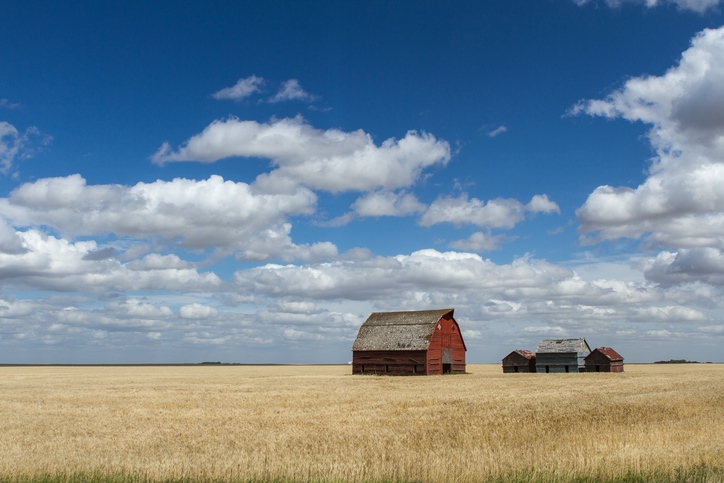Investing in Canadian Farmland

While some investors may have a higher tolerance for risk, most prefer a strong, stable relationship – one that allows their money to quietly flourish.
Investors looking for double-digit return potential don’t have to sign up for the rollercoaster ride that often accompanies high-risk investments. Consider the context of farmland: diminishing supply (new agricultural land is not being created) coupled with increased need for production, thanks to the ever-increasing global population. Canadian farmland, in particular, has a reputation for value, known for generating good returns with low volatility. Plus, our government puts a priority on protecting the security of our national food supply.
Enter the Avenue Living Agricultural Land Trust. 100% Canadian-owned and operated, this closed-end mutual fund trust invests in Canadian farmland. The business model focuses on leasing to farm operators for cash rent. Farmers enjoy operational growth efficiencies with reduced capital requirements. Avenue Living’s acquisitions are a win for both farmer tenants and investors in the Trust.
While most other agricultural investing groups limit their exposure to cash holdings, Avenue Living Agricultural Land Trust applies financial leverage to acquisitions to enhance returns. By using leverage, the Trust exposes investors to a larger, more diverse portfolio than would otherwise be attainable. Meanwhile, cash rent services the debt and management expenses.
“Typically, banks lend to farmers as owner/operators, but it is somewhat uncommon to lend to the farm landlord model,” said Leif Snethun, Chief Executive Officer of Avenue Living Agricultural Land Trust.
“However, with Avenue Living’s $1.1 Billion assets under management, we have a long-standing relationship with lenders for our multi-family assets. With the demonstration of our agriculture business model’s viability, we have been able to secure loans for our agricultural acquisitions.”
The Trust currently owns 22,000 acres, with approximately 7500 additional acres under contract, closing between December 2018 and March 2019.
“To minimize our business risk, we don’t remove purchase conditions unless we have line-of-sight on a tenant,” said Snethun.
Based in Calgary, Snethun travels to Saskatchewan regularly to stay in touch with Avenue Living’s agricultural tenants and to assess additional acquisition opportunities. He’s also personally invested in the fund.
“In my opinion, ownership in farmland is something I want to pass on to my kids and my grandkids,” said Snethun, whose own family farms in Southern Alberta. “I see it developing into a steady source of revenue in the family portfolio and expect to see continued capital appreciation, for as long as land is needed to grow food. Everyone should have investment in assets that have an element of scarcity and that are needed by current and future generations. Agricultural land fits those criteria.”


